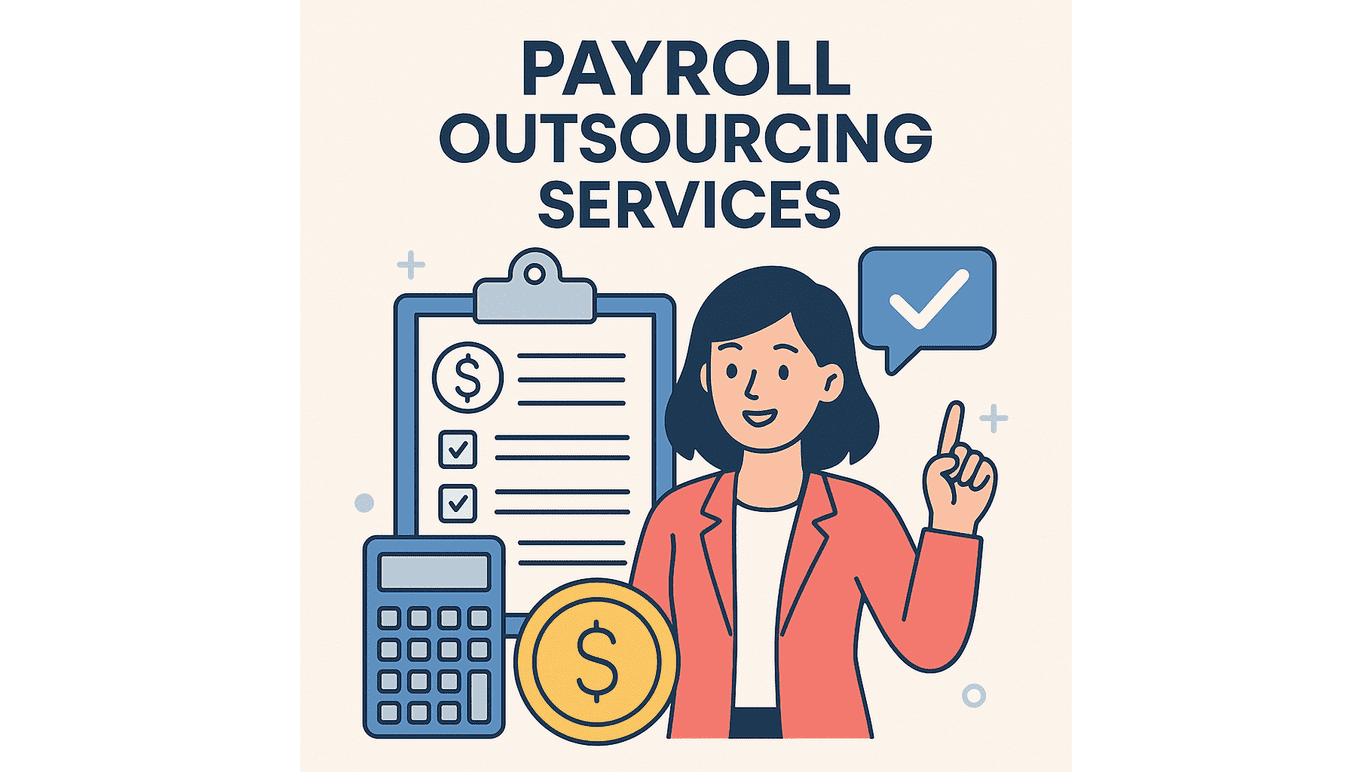
Bookkeeping is an essential part of any business, ensuring accurate financial records, compliance with tax regulations, and efficient cash flow management. However, many business owners find bookkeeping to be time-consuming and complex. Instead of handling it in-house, an increasing number of companies are outsourcing bookkeeping services to professional firms.
Outsourcing bookkeeping can significantly enhance business efficiency and contribute to long-term growth. By leveraging external expertise, businesses can focus on core operations, reduce costs, and improve financial accuracy. In this article, we will explore the key benefits of outsourcing bookkeeping services and how it can be a game-changer for businesses of all sizes.
1. What Are Bookkeeping Services?
Before diving into the benefits of outsourcing, it is important to understand what bookkeeping services entail. Bookkeeping involves recording, organizing, and managing financial transactions for a business. These services typically include:
- Recording daily financial transactions
- Managing accounts payable and accounts receivable
- Reconciling bank statements
- Preparing financial reports
- Managing payroll processing
- Ensuring tax compliance
Professional bookkeeping services ensure that financial records are accurate, up-to-date, and compliant with legal standards. Many businesses prefer outsourcing these tasks to specialized bookkeeping firms rather than hiring an in-house accountant.
2. The Challenges of In-House Bookkeeping
Many small and medium-sized businesses (SMBs) struggle with in-house bookkeeping due to several reasons:
Time-Consuming
Bookkeeping requires meticulous attention to detail, which can be time-intensive. Business owners who handle bookkeeping themselves may find it difficult to focus on revenue-generating activities.
Risk of Errors
Without professional expertise, bookkeeping mistakes such as incorrect entries, miscalculations, or missing invoices can occur. These errors can lead to financial discrepancies, tax penalties, and cash flow issues.
High Costs
Hiring a full-time in-house bookkeeper can be expensive. Beyond salaries, businesses must cover costs for benefits, office space, training, and bookkeeping software.
Lack of Expertise
Bookkeeping regulations and tax laws are complex and frequently change. Without up-to-date knowledge, businesses may struggle to maintain compliance, increasing the risk of financial and legal troubles.
These challenges highlight why outsourcing bookkeeping services is a smart move for businesses looking to optimize financial management.
3. The Benefits of Outsourcing Bookkeeping Services
Outsourcing bookkeeping services provides several advantages that contribute to business efficiency and growth.
A. Cost Savings
One of the biggest benefits of outsourcing bookkeeping is cost efficiency. Hiring an in-house bookkeeper requires a salary, benefits, and office space, which can be costly. Outsourcing eliminates these overhead costs, allowing businesses to access professional services at a fraction of the cost.
Additionally, bookkeeping firms use advanced software and automation, reducing errors and financial losses that could arise from manual bookkeeping.
B. Improved Accuracy and Compliance
Bookkeeping professionals have extensive experience and up-to-date knowledge of accounting standards and tax regulations. This ensures accurate record-keeping, reducing the risk of errors and penalties.
Outsourcing firms also use specialized software to maintain precise financial data and generate reports, ensuring compliance with local tax laws. This can help businesses avoid costly fines and audits.
C. More Time for Core Business Activities
Managing financial records can take up significant time, especially for small business owners. Outsourcing bookkeeping services allows business owners and employees to focus on growth-oriented activities such as marketing, customer service, and product development.
By delegating financial tasks to experts, businesses can enhance productivity and overall efficiency.
D. Access to Expert Bookkeepers
Outsourcing provides access to experienced professionals with in-depth knowledge of financial best practices. These experts offer valuable insights into budgeting, cash flow management, and financial planning, helping businesses make informed decisions.
Furthermore, many bookkeeping firms employ Certified Public Accountants (CPAs) and financial advisors who can offer strategic financial advice tailored to a company’s needs.
E. Scalability and Flexibility
Outsourced bookkeeping services are highly scalable, making them suitable for businesses of all sizes. Whether a business is a startup, a growing enterprise, or a well-established company, outsourced bookkeeping can be adjusted to match business needs.
During busy seasons, businesses can increase bookkeeping support, while reducing services during slower periods. This flexibility ensures that businesses only pay for the services they need.
F. Enhanced Data Security
Financial data security is a major concern for businesses. Professional bookkeeping firms implement strict security protocols, encryption, and backup systems to protect sensitive financial information.
Unlike in-house bookkeeping, where data can be lost due to human error or system failures, outsourcing ensures that financial records are securely stored and easily accessible when needed.
G. Access to Advanced Technology
Bookkeeping firms invest in the latest accounting software, automation tools, and cloud-based solutions to improve efficiency. Businesses that outsource bookkeeping can benefit from these technologies without investing in expensive software or training.
Cloud-based bookkeeping allows businesses to access financial reports and records in real-time, enabling better decision-making. Popular bookkeeping software such as QuickBooks, Xero, and FreshBooks are commonly used by professional firms to streamline financial management.
4. How to Choose the Right Bookkeeping Service Provider
Not all bookkeeping services are created equal, so selecting the right provider is essential. Here are some key factors to consider when outsourcing bookkeeping:
A. Industry Experience
Choose a bookkeeping service provider with experience in your industry. Different businesses have unique financial requirements, and an experienced provider will understand your industry-specific needs.
B. Reputation and Reviews
Look for reviews, testimonials, and case studies from previous clients. A reputable bookkeeping firm should have positive feedback and a strong track record of accuracy and reliability.
C. Technology and Software
Ensure that the bookkeeping provider uses modern accounting software compatible with your business needs. Cloud-based solutions are preferable as they offer easy access to financial records and real-time updates.
D. Compliance and Security Measures
Verify that the provider follows strict security measures to protect financial data. They should also stay updated with local tax laws and regulations to ensure compliance.
E. Customization and Scalability
Opt for a bookkeeping service that can be tailored to your business size and growth stage. Flexible service plans ensure that you pay for what you need without unnecessary expenses.
5. Conclusion: Why Outsourcing Bookkeeping Services is a Smart Business Move
Outsourcing bookkeeping services offers numerous benefits, including cost savings, improved accuracy, scalability, and access to expert financial advice. Businesses that delegate bookkeeping to professional firms can focus on their core operations, enhance efficiency, and accelerate growth.
As the business landscape becomes increasingly competitive, financial management plays a crucial role in success. Partnering with a reliable bookkeeping service provider ensures that businesses maintain accurate financial records, stay compliant, and make data-driven decisions.
For businesses looking to streamline financial processes and achieve long-term success, outsourcing bookkeeping services is a strategic investment that pays off in efficiency, accuracy, and profitability.







